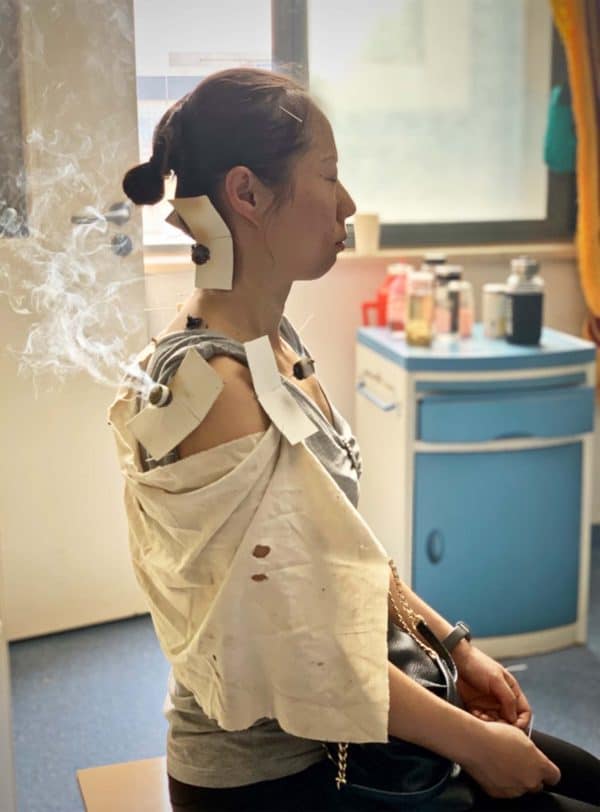Acupuncture treatment of the shoulder-hand syndrome
OBJECTIVE:
To assess the effectiveness of acupuncture therapy for the shoulder-hand syndrome.
METHODS:
Researchers retrieved randomized controlled trial papers on shoulder-hand syndrome from 2005–2010 using VIP, Wanfang, CNKI, and conference collections. They searched with keywords like shoulder-hand syndrome, reflex sympathetic dystrophy, acupuncture, and moxibustion. Next, they assigned Jadad scores to the documents and analyzed them using Cochrane’s Manager 5.0 Review software.

A patient receiving Acupuncture and Moxibustion. Acupuncture treatment of the shoulder-hand syndrome.
RESULTS:
Initially, researchers actively retrieved 100 papers and carefully selected 29 that met the inclusion criteria. Subsequently, they assigned Jadad scores: specifically, two papers earned 2 points, while 27 received 1 point, clearly indicating low quality. Next, researchers seamlessly incorporated 21 papers into a comprehensive Meta-analysis, which collectively encompassed 1,768 patients. These patients were then systematically divided into three distinct groups based on their respective intervention measures. Consequently, the meta-analysis robustly demonstrated that simple acupuncture therapy significantly surpasses acupoint block therapy in effectively relieving shoulder-hand syndrome, yielding an impressive odds ratio of 4.80 (95% CI: 2.02 to 11.41), with a P-value less than 0.001.
CONCLUSION:
Acupuncture can effectively relieve shoulder-hand syndrome in pain, wrist- and shoulder-joint motor, etc. Nevertheless, to establish more reliable and conclusive evidence, researchers should first conduct larger-scale studies and, additionally, implement high-quality randomized clinical trials.
Resources:
– SOURCE: Journal of NeuroImage, Volume 47, Issue 3, September 2009, Pages 1077-1085 doi:10.1016/j.neuroimage.2009.05.083
https://www.acufinder.com/Acupuncture+Information/Detail/New+Evidence+th…
Dr. Tony Willcox graduated in 2006 with the Academic Excellence Award from the Atlantic Institute of Oriental Medicine, in Ft. Lauderdale, FL.
In 2016, Dr. Tony actively earned his Clinical Doctorate from the same institution, as this newly established Doctorate became the highest degree offered by the American Acupuncture Association. Simultaneously, Dr. Tony enthusiastically embraced an offer to pursue a dual doctorate and, consequently, promptly enrolled in a PhD program in Acupuncture in Anhui, China.
This was a 4-year process and Tony graduated with a Ph.D. from the Anhui University of Chinese Medicine in July of 2019.
